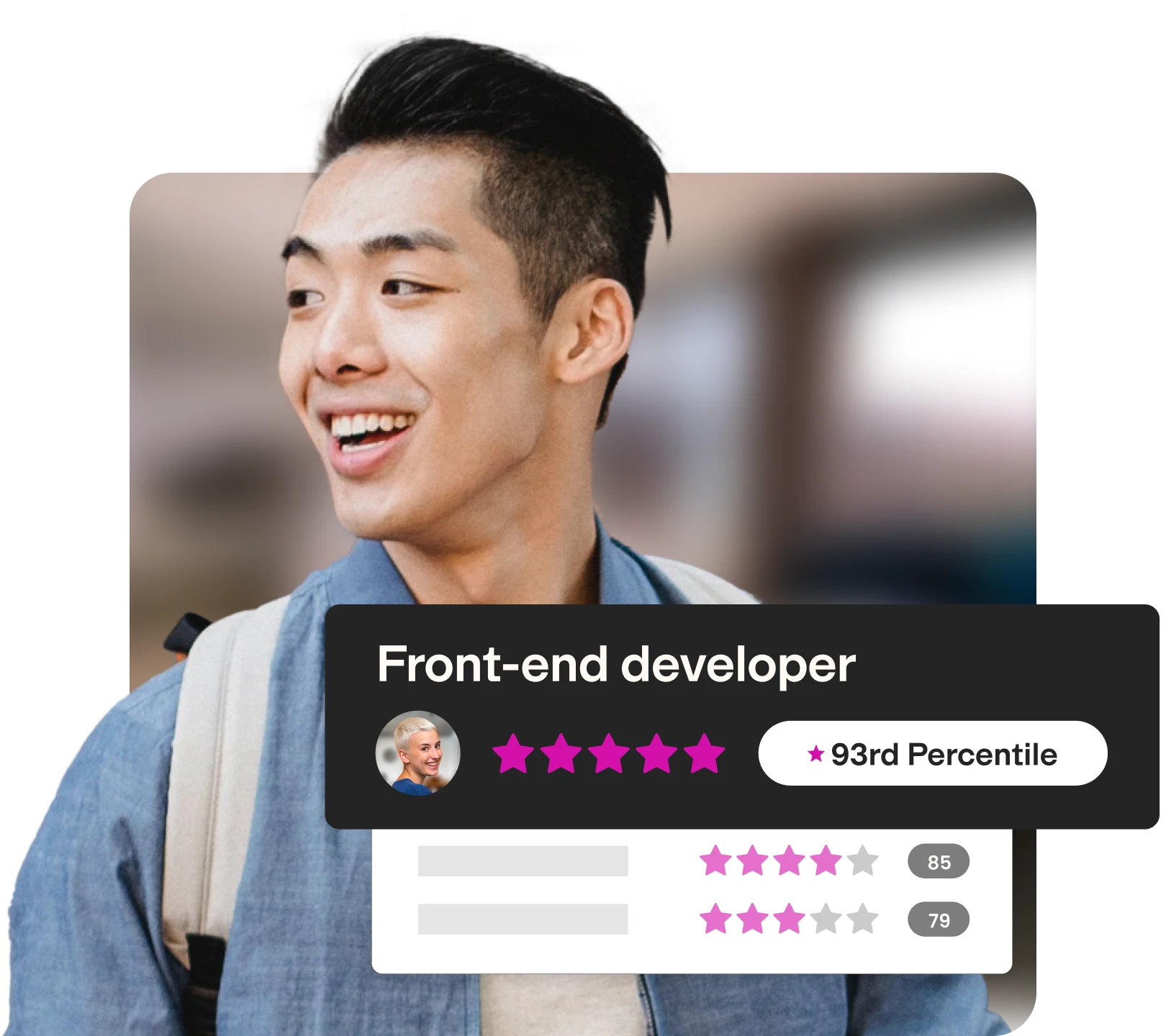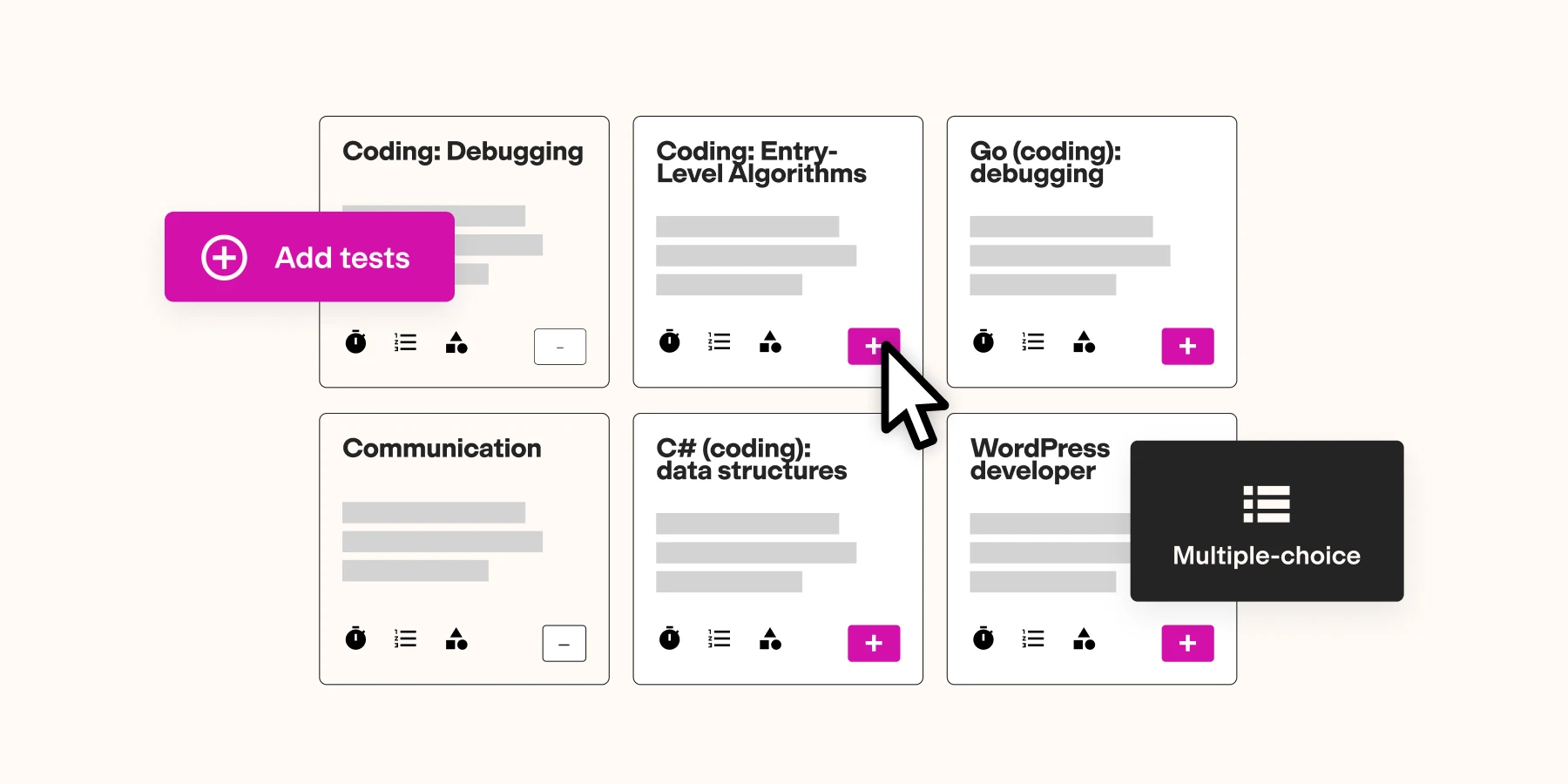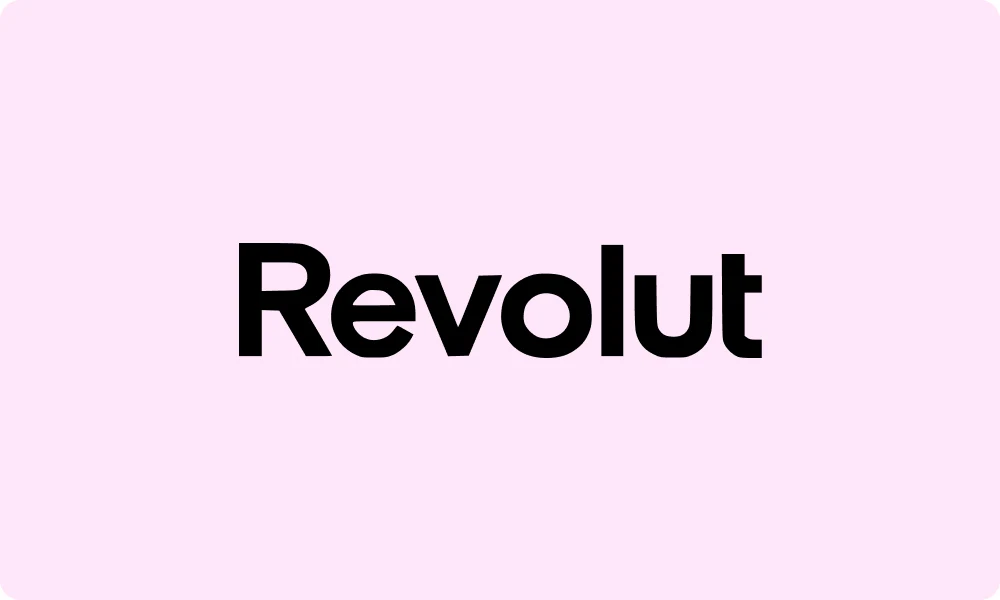SKILLS TESTS TO HIRE THE BEST
Are you ready to upgrade your hiring strategy and start boosting results straight away? Start using skills-based hiring and discover a reliable and easy way of assessing candidates.
The benefits of shifting to skills-based hiring
Each year, we survey thousands of companies and candidates around the globe to understand the effect that skills-based hiring has on them and their organizations. The State of Skills-based hiring report 2024 shows that companies using skills-based hiring are experiencing dramatic improvements in performance across several key metrics
of organizations saw a reduction in cost-to-hire
of organizations saw a reduction in time-to-hire
of organizations saw a reduction in mis-hires
The best candidate is just an assessment away
Ready to land your next dream hire?
Whenever you are ready to take the next step, we'll be here to help you during the process. If you want to learn more about how TestGorilla can improve your recruitment, book a demo with one of our product advisors. If you are ready to jump in, start creating a free account.
See how high-performing companies hire the best with TestGorilla
Revolut hires 40% faster with TestGorilla
Revolut is a global leader in the financial services industry. Since the organization was founded in 2015, its team has worked tirelessly to close the gap between traditional banking and modern fintech which has the potential to change the world. In just a few years, Revolut has grown from a simple cash-management app to a fully-fledged European bank with more than 20 million personal customers and 950,000 business customers in more than 200 countries. Julia Panchenko, the services recruitment manager at Revolut, faced the challenge of building high-functioning multi-lingual teams to serve a truly global enterprise.
TestGorilla helps Hydroemission cut hiring time by 80%
Hydroemission is a leading provider of controlled release technology for environmental applications, specializing in agriculture and public health. The company is headquartered in Singapore, with R&D and manufacturing operations in Johor, Malaysia. Hydroemission’s main focus is research & development and the manufacturing of controlled release consumer and industrial consumables. Paolo Nalin is the Managing Director of Hydroemission and was looking for a solution that’d allow the company to test the cognitive abilities of job applicants and optimize the recruitment process.
LILAB boosts new employee retention up to 90%
Based in Peru, Lima Innovation Lab (LILAB) is a leading software company dedicated to creating innovative digital solutions. From the start, their team of over 100 people has been committed to providing the best service in the digital technology field. We spoke with Dayana Castro, recruiter at LILAB.
Easier for recruiters, focused on candidates
Improve the quality of your hires. Hire the candidates that have higher scores in the assessments. Our tests are made by subject-matter experts and are a reliable indicator to predict job success.
Spend your time where it matters. Gather extensive insights from the candidates before you have even interacted with them. Automate your process by posting public links in your job posts and using qualifying questions to pre-screen applicants.
Increase your talent pool. Assess candidates who may not have submitted a resume or could have been rejected in a manual resume-screening process. Evaluate all applicants, whether there are 10 or 100.
Create diverse teams. Prevent subjective judgments and promote diversity by assessing candidates on the skills actually relevant for the job, rather than their ability to write a resume.
Find out more about the strategy behind skills-based hiring
4 reasons employers hire faster with skills-based hiring
It's safe to say that traditional hiring methods aren't saving time for anyone. Job seekers spend hours tweaking resumes, whilst recruiters spend their days sifting through them without gathering any relevant information about what a candidate’s actual skills are. Skills-based hiring, however, cuts right to the chase. Assessing and hiring for a candidate’s skills by using multi-measure assessments is a proven way to hire faster – in fact, 82% of employers using skills-based hiring told us it reduced their time-to-hire. Read on to find out how to hire faster with skills-based hiring.
Hiring the right people: Leverage this strategy and increase retention
Hiring the right people determines whether your employees are confident in their roles. When employees are able to perform well, they are less frustrated and more satisfied with their jobs. Unfortunately, 74% of employers believe they’ve hired the wrong person for a position. This bad hiring decision costs companies $14,900 on average.[1] If they aren’t a good fit, a new hire likely won’t stay and can disrupt team morale. So, how do you prevent that? You can focus on hiring the right people as a talent retention strategy by assessing candidates objectively through talent assessments. Hiring people who can successfully perform their roles and fit in with the team boosts employee satisfaction and performance. This article navigates the nuanced terrain of recruitment and talent retention trends, helping you understand how to use talent assessments and other strategies to evaluate the skills, culture compatibility, and long-term potential of your candidates to ensure you hire the right people.
Psychometric testing: Complete guide with examples and tips
Psychometrics – a scientific field focused on testing personality traits and cognitive ability via skill assessments, measurements, and models – makes the difference between an average hire and a great one. Assessing skills and traits helps you understand the strengths and abilities of your candidates, enabling you to make better hiring decisions. Still, you must be careful not to rely on a single psychometric test for recruitment because it can give you an incomplete picture of a candidate’s abilities. In this article, we examine different types of psychometric testing, provide psychometric assessment examples, and give you tips on how to use them to find the best talent.
Top companies choose us for a reason
TestGorilla is an exceptional performer in the G2 Mid-Market Grid®. We’re a top choice for mid-market companies, earning high praise from customers.













